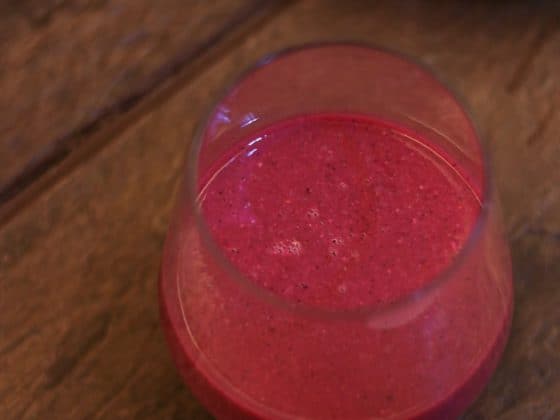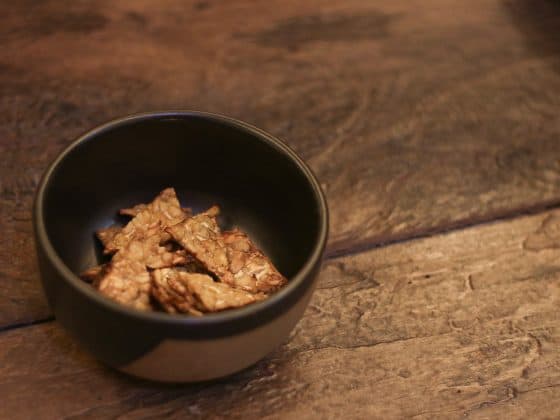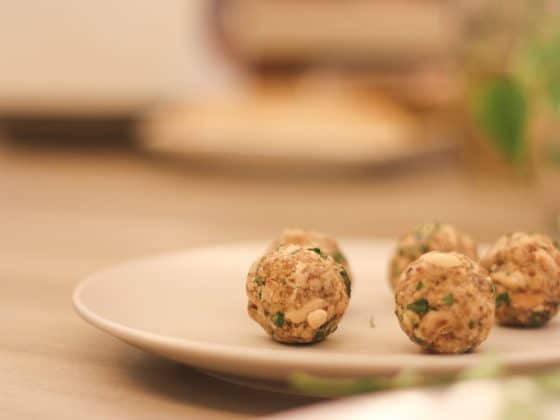There are a lot of articles on the internet that explain specifically what a pregnant women should eat during or after pregnancy, not to mention all the things you should do.
There’s just one problem, what about before you get pregnant?
If you’re looking to get pregnant, diet is one of the most overlooked aspects. It’s not only important to increase your chances of getting pregnant, your overall health and also your baby’s health!
So here are a few tips to tweak your diet while preparing to welcome a new member to the family!
Adopting proper eating habits
One of the first steps for a pre-pregnancy diet starts from the basics-adopting a proper eating habit.
This is very important because if you manage to practise proper eating habits during this stage, it will be a lot easier to manage the pregnancy and even post pregnancy diet and nutritional requirements.
It’s not only good for your future baby, but also a great way to keep your weight in check too! However, too many women (and men) simply reduce the amount of food they eat inappropriately which can lead to nutritional deficiencies or worse, not cutting down any weight at all. So, it’s extremely important to adopt good eating habits and avoid haphazard dieting if you’re looking to get pregnant.
What’s the deal with macro and micro nutrients?
In general, we can separate the nutrients our bodies need into macro-nutrients and micro-nutrients.
Macro-nutrients are nutrients we need in a larger quantity. These include familiar nutrients such as carbohydrates, fats and proteins.
Micro-nutrients are those we need in smaller amounts. These include minerals such as folate/folic acid, calcium and iron.
Both are equally important, hence it is essential to supply your body with a balanced of these nutrients. Each of these nutrients has a role to play in maintaining your health and supporting your pregnancy when the time comes.
So let’s start exploring how these nutrients will help you in your journey to pregnancy!
Macro-nutrients
Eat the right carbs
Carbohydrates are the most important macronutrient that we consume daily. It provides us with the energy needed for our daily activities in the form of calories.
You may have heard of diets and advice about “cutting your carbs”. In fact, a lot of women follow this advice strictly in order to lose some weight before pregnancy. However, according to a research study, by reducing calories and carbs, the first thing that happens is that the menstrual cycle goes haywire (1). This just shows how important carbs are to your diet and future pregnancy.
However, there’s another catch, not all carbs are good either! Put simply, there are both ‘good’ and ‘bad’ carbs.
The reason why good carbs are good is because they’re converted to energy more slowly and gradually, which also affects the blood sugar slowly as well. As a result you get more consistent energy and less fatigue throughout the whole day with good carbs.
But, with bad carbs, they’re converted to energy extremely quickly, which leads to huge spikes in blood sugar and energy. As a result, diets heavy in bad carbs tend to make you energetic really fast but also make you tired just as quickly.

As for foods, “bad” carbs are from heavily processed foods with low nutritional values, such as refined flour, white sugar, etc. On the other hand, “good” carbs tend to come from more nutritious and less produced wholefoods and wholegrains, which includes brown rice, barley, millet, quinoa, etc. Wholegrains for example, contains a layer of bran and germ which not only provides fiber, but also other vitamins such as Bs, E, phytochemicals, etc.
So, in general, try and keep bad carbs down while replacing them with good carbs instead!
Don’t skip healthy fats
Oh no, the dreaded f-word!
Although people avoid fats and oils like a person with the flu, they are still one of the most essential nutrients for everyone, especially for those planning for pregnancy.
As always, you have to choose the right types of fats. Having plenty of omega-3 fatty acids and monosaturated fats give very beneficial boosts to fertility (2), being plentiful in quality organic nuts and seeds such as flaxseed, walnuts, pumpkin seeds, etc.
Omega-3 fatty acids is a little tough to obtain, but you can get them from organic flaxseed oil. They contain about 50% omega-3 fatty acids.
Build a fertile foundation with proteins
Proteins are the “bricks” that your body uses to build and repair itself, there are plenty of sources for good protein from both animals and plants.
However, a recent study from The Harvard Public Health study showed that just having 5% of total calorie intake from plant based proteins reduces the risk of ovary disorders by half. The same study also showed that women who consume large amounts of animal protein are 39% more likely to have infertility issues (3). It seems that plant-based protein is the way to go for women looking to get pregnant.
So if you’re looking for plant-based protein, where should you start? A good place to look first would be beans and legumes, which are packed with protein. But make sure to get them from a variety of sources too! A side note: protein is relatively harder to digest, so it’s best to find fermented foods with plant-based protein to give your digestive system an easier time such as organic tempeh and tofu.
Micro-nutrients
Take Plenty of Folate/Folic acid
Take notes! Folate or folic acid is one of the most important vitamins when preparing for pregnancy. This vitamin is very important for the formation of cells, DNA synthesis and maintenance. Not only that, it also helps to prevent birth defects of the nervous system such as spina bifida (incomplete spine).
If you’re looking to get pregnant, it’s essential to consume about 400 micrograms (mcg) of folic acid/folate daily for at least a month before getting pregnant. You can find folate in foods such as lentils, sweet corn, oranges and green leafy vegetables.
Iron & Calcium
Iron and calcium are already one of the most commonly deficient nutrients in most women’s diet, leading to issues such as anemia (low red blood cell count) .
This is an even bigger problem during pregnancy too because now you have to supply both your baby and yourself with red blood cells!
Iron and calcium help solve this by encouraging red blood cell production, which supplies more oxygen to both mother and fetus, ensuring a smoother pregnancy overall. So make sure to take more food high in iron and calcium, the earlier the better.
For calcium in particular, having too low amounts will put you at higher risk for osteoporosis later in life. This is because if your calcium supply is not sufficient during pregnancy, calcium will be drawn from your bones instead. This is why it is important to load up early on calcium while preparing for pregnancy.
Similar to folic acid, iron and calcium can be found in dark green leafy vegetables. So go green as much as you want!
General Tips
To keep things simple and practical, here are two simple guidelines to follow:
- Go for an organic, balanced, varied, wholefood diet that is mainly plant-based. Reduce processed food and sugar intake.
- Eat more fruits and vegetables. Aim for 4-5 servings of vegetables (2 servings should be from green leafy vegetables) and 3-4 servings of fruits daily.
By practicing these simple rules, you should be able to get the basic nutrition needed for pre-pregnancy settled.
Finally, now that you know how both micro and macro nutrients work, it’s time to put them into practice! Best of luck to your pregnancy and your health!
References:
- Meczekalski, B., Katulski, K., Czyzyk, A. et al. Functional hypothalamic amenorrhea and its influence on women’s health. J Endocrinol Invest 37, 1049–1056 (2014). https://doi.org/10.1007/s40618-014-0169-3
- Lauren A Wise, Amelia K Wesselink, Katherine L Tucker, Shilpa Saklani, Ellen M Mikkelsen, Heidi Cueto, Anders H Riis, Ellen Trolle, Craig J McKinnon, Kristen A Hahn, Kenneth J Rothman, Henrik Toft Sørensen, Elizabeth E Hatch, Dietary Fat Intake and Fecundability in 2 Preconception Cohort Studies, American Journal of Epidemiology, Volume 187, Issue 1, January 2018, Pages 60–74, https://doi.org/10.1093/aje/kwx204
- Chavarro, J. E., Rich-Edwards, J. W., Rosner, B. A., & Willett, W. C. (2008). Protein intake and ovulatory infertility. American journal of obstetrics and gynecology, 198(2), 210.e1–210.e2107. https://doi.org/10.1016/j.ajog.2007.06.057









